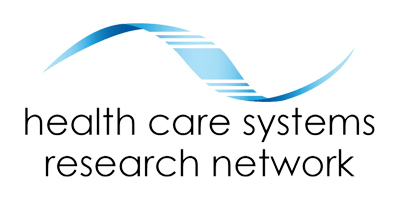Engaging Patients in Research
HCSRN’s Collective Expertise in Patient & Stakeholder Engagement
There are many ways to partner with or involve patients in research. The HCSRN has excelled in the relatively recent shift toward conducting patient-partnered research, with more than three dozen awards from the Patient-Centered Outcomes Research Institute since 2011. Given that the HCSRN has amassed numerous insights and practical approaches to patient-partnered research, this page will grow and evolve to serve as a repository for those interested in collaborating with patients. We invite you to contribute resources, join our Patient Engagement in Research Scientific Interest Group, or simply bookmark this page for future reference.
A Range of Patient Partnerships
Collaborations with patients can take on many different formations in the context of a research study. Each study is different, and may benefit from occasional involvement of a Patient/Family Advisory Council, consultation at specific junctures of a study, or a steady, ongoing partnership with one ore more patient co-investigators.
Patient Engagement Resources
Check back regularly for more materials, including presentations, tools, and resources that are specifically aimed at research partnerships based in health systems.
- Patient Engagement Workbook– created by the Patient Engagement in Research Scientific Interest Group
- Materials developed by the VA’s Older Veterans Engagement Team include helpful tactics and approaches for engagement that are generalizable to other groups. For example, the team has created an orientation manual for newly engaged participants, and an interview form to help pinpoint how participants are interested in contributing to research. If you are interested in these or other materials, contact us.
- You can also download a recent presentation from our friends at Patient and Family Centered Care Partners on engaging patients and families at the forefront of health care operations and research
- Colleagues at Kaiser Permanente Washington Health Research Institute have had a longstanding interest in plain language in the research context, and have developed tools to support research personnel. The resources are aggregated into the PRISM Readability Toolkit, a free, open access compendium that includes sample research consent forms and letters, a plain language vocabulary list for common research and medical terms, and background materials on the importance of recognizing and addressing health literacy.
- PCORI has created a searchable repository of publications on engagement in health research, sortable by topic, phase of research, and type(s) of stakeholders involved in the research.
- The Center for Medicare and Medicaid Services (CMS) has a tremendous responsibility for measuring how well health care is delivered. The agency has a neat resource for engaging people and families in the development of new measures. Their comprehensive toolkit includes videos, off-the-shelf templates and success stories, many of which can be adapted for more traditional health care research. Additional resources produced by CMS describe how stakeholders can become more involved in measuring and improving health care.
- Kaiser Permanente Northern California used an array of approaches to successfully engage patients as partners in data analyses for the ACTIVATE study. Check out the slides from a superb webinar provided by Monique Does at the October 2019 PER SIG Meeting.
- The Kaiser Permanente Center for Health Research (CHR) has developed the Patient Engagement Toolkit, a freely available public resource. This web-based toolkit provides practical resources to support researchers who want to recruit, train, and work with patient partners as part of their research.
